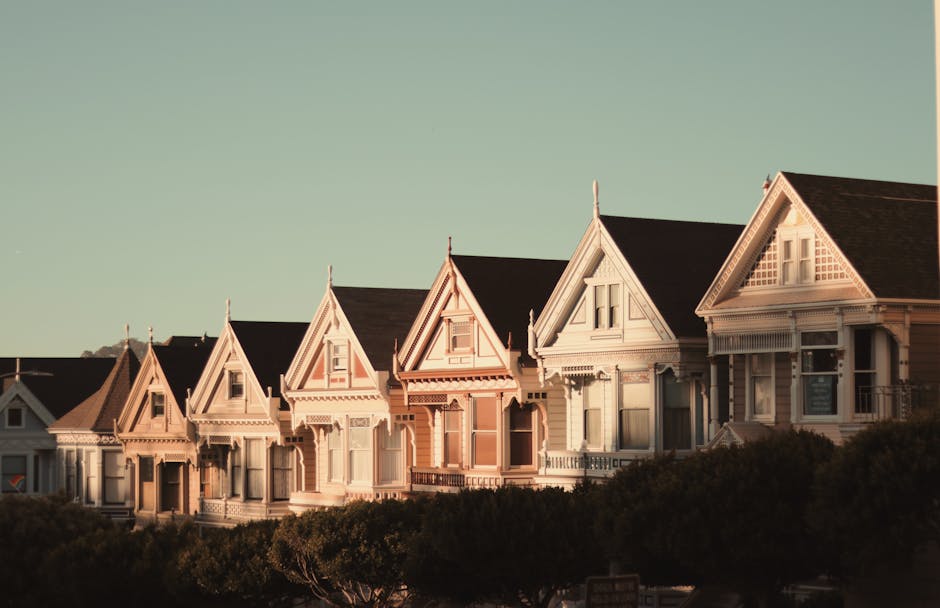The Pros and Cons of Manufactured Homes: What You Need to Know
Exploring the Benefits and Drawbacks of Manufactured Homes
Manufactured homes, also known as mobile homes or trailers, have become increasingly popular as an affordable housing option. These homes are built in a factory and then transported to a site where they are set up. They offer a more budget-friendly alternative to traditional stick-built homes. If you're considering purchasing a manufactured home, it's important to weigh the advantages and disadvantages before making a decision.
In this article, we'll explore the benefits and drawbacks of manufactured homes, giving you a comprehensive understanding of what to expect from this housing option. From cost savings to potential pitfalls, we'll cover it all to help you make an informed choice.
Pros
Manufactured homes offer several advantages that make them an appealing housing option for many people. Here are some of the key benefits of choosing a manufactured home:
Customization Options
Contrary to popular belief, manufactured homes offer a wide range of customization options. Buyers can choose from various floor plans, finishes, and amenities to create a home that suits their preferences and needs. Some manufacturers even offer energy-efficient upgrades and other modern features that rival those found in traditional homes.
Construction Quality
Modern manufactured homes are constructed with high-quality materials and built to stringent building codes. Thanks to advancements in technology and manufacturing processes, these homes are often sturdier and more durable than their predecessors. This ensures that homeowners can enjoy a comfortable and reliable living space.
Quick Construction
The construction timeline for a manufactured home is typically much shorter than that of a traditional home. Since these homes are built in a controlled factory environment, weather-related delays are minimized, resulting in a faster turnaround time. This can be advantageous for individuals looking to move into their new home promptly.
Energy Efficiency
Many modern manufactured homes are designed with energy efficiency in mind. From improved insulation to energy-efficient appliances, these homes can help homeowners reduce their energy consumption and utility costs. This not only benefits the environment but also contributes to long-term savings for the homeowner.
Low Maintenance Costs
Manufactured homes often require lower maintenance costs compared to traditional stick-built homes. The materials used in their construction are often designed to be durable and require minimal upkeep, saving homeowners time and money in the long run.
Community Amenities
Many manufactured home communities offer a range of amenities such as swimming pools, playgrounds, and clubhouse facilities. These amenities can enhance the lifestyle and recreational opportunities for residents, creating a sense of community and belonging.
Affordability
One of the most significant advantages of manufactured homes is their affordability. These homes tend to be much more budget-friendly than traditional stick-built homes, making homeownership more accessible to a wider range of people. The cost savings can be especially beneficial for first-time homebuyers or those on a tight budget.
Missing a pro?
Let us know which pro you are missing!
Cons
While manufactured homes offer several advantages, there are also some drawbacks that prospective buyers should take into account. Here are a few potential disadvantages of choosing a manufactured home:
Resale Value
Manufactured homes may not appreciate in value at the same rate as traditional homes. This can impact the resale value of the property and potentially limit the return on investment for homeowners. It's essential to consider the long-term financial implications of owning a manufactured home, particularly if you plan to sell in the future.
Land Lease Issues
In some cases, manufactured homes are situated on leased land rather than owned property. This arrangement can introduce complexities and potential uncertainties regarding land lease renewals, rent increases, and community regulations. Prospective buyers should thoroughly understand the terms of the land lease before committing to a manufactured home purchase.
Stigma
Despite the advancements in manufactured home construction and design, there remains a stigma associated with these homes. Some individuals may perceive manufactured homes as inferior to traditional homes, which can impact the homeowner's sense of pride and community acceptance. Overcoming this stigma may require proactive efforts and education.
Financing Challenges
Obtaining financing for a manufactured home can be more complex than securing a mortgage for a traditional home. Some lenders may have stricter requirements for manufactured home loans, including higher down payments and interest rates. It's important for prospective buyers to explore financing options and understand the associated terms and conditions.
Limited Location Options
The placement of a manufactured home may be restricted by zoning regulations, community covenants, and other local restrictions. This can limit the available locations for setting up a manufactured home and may require buyers to navigate specific approval processes. It's crucial to research the placement options and associated limitations in advance.
Zoning Restrictions
One of the major disadvantages of manufactured homes is the zoning restrictions they may face. Some areas have strict zoning laws that limit where manufactured homes can be placed, restricting homeowners' options for location and potentially causing inconvenience.
Limited Financing Options
Manufactured homes can sometimes pose challenges in securing financing. Some traditional lenders may have stricter requirements for providing loans for manufactured homes, leading to limited financing options for potential buyers.
Missing a con?
Let us know which con you are missing!
Conclusion
In conclusion, manufactured homes offer an array of advantages such as affordability, customization options, and energy efficiency, making them an attractive choice for many homebuyers. However, it's important to be mindful of potential drawbacks, including resale value considerations, land lease issues, and financing challenges. By carefully weighing the pros and cons, individuals can make well-informed decisions when considering manufactured homes as a housing option.
What do you think?
Do you think the pros outweigh the cons?







